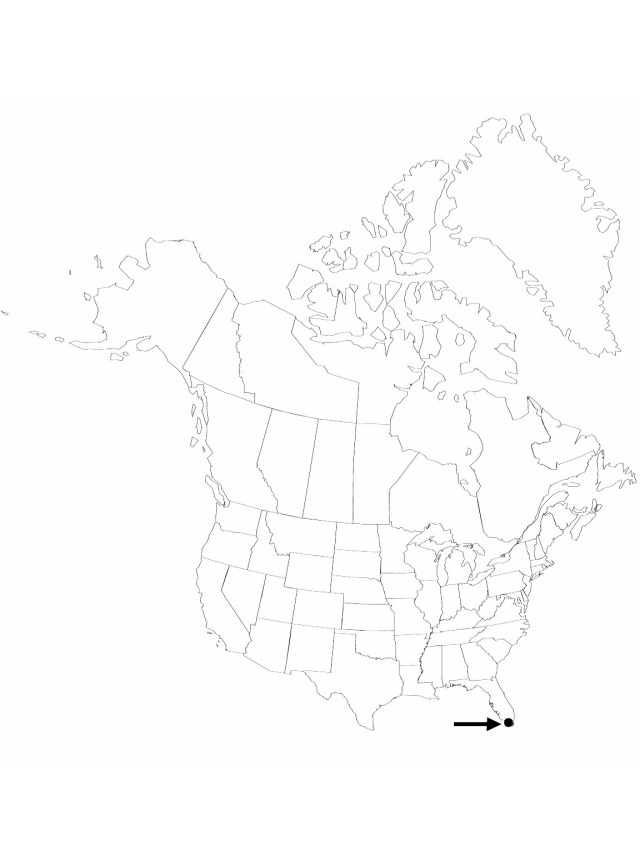Plants usually single, rarely clustering, flowering to 10 cm. Stems short. Leaves 5–10, many-ranked, contorted or secund-spreading, gray-green to silver, 6–10 × 0.3–0.5 cm, densely pruinose-scaly, scales coarse; sheath dark chestnut brown within, ovate to elliptic, conspicuously inflated, forming small pseudobulb, 1.5–3 cm wide; blade linear-subulate, semisucculent, margins involute, apex attenuate. Inflorescences: scape inconspicuous, usually ascending, 1–3 cm, 2–3 mm diam.; bracts densely imbricate, erect to spreading, like leaves but gradually smaller; sheath of bracts narrowing abruptly into blade; single spikes, usually ascending, pinnate, broadly elliptic, compressed, 2–3 × 1.2–2.4 cm, apex acute to obtuse. Floral bracts imbricate, erect, pink, broad (covering all or most of rachis, rachis not visible at anthesis), ovate, keeled, 2–2.2 cm, thin-leathery, base not visible at anthesis, apex broadly acute, surfaces densely scaly, venation even to slight. Flowers 3–12, conspicuous; sepals free, elliptic, adaxial pair keeled, 1.2–1.8 cm, thin-leathery, veined, apex obtuse, surfaces glabrous; corolla tubular; petals erect, blue-violet, ligulate, to 3 cm; stamens exserted; stigma exserted, conduplicate-spiral. Fruits to 3.5 cm.
Phenology: Flowering spring–summer.
Habitat: Epiphytic in shady, humid hammocks
Elevation: 0–30 m
Distribution

Fla., West Indies, Central America, South America.
Discussion
In the flora area, Tillandsia pruinosa is infrequent but locally abundant.
Selected References
None.